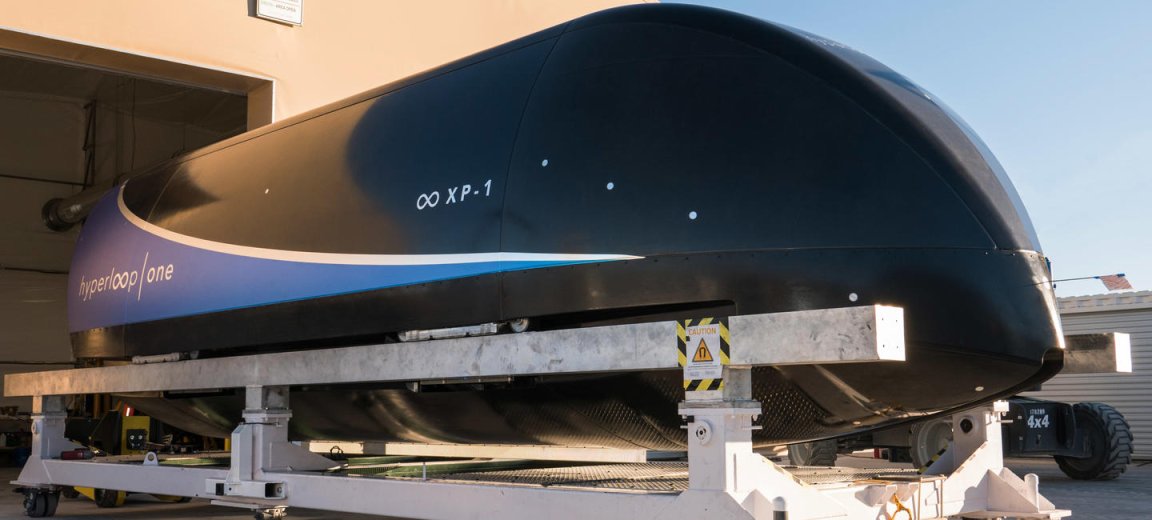
Hyperloop Speed Record
On December 18, Virgin Hyperloop One announced the completion of third phase testing on the DevLoop, the world’s first full-scale hyperloop test site. During these tests, the system clocked a lightning-fast speed of nearly 387 kmh (240 mph), breaking the 355 kmh (220 mph) hyperloop speed record set by Elon Musk’s hyperloop in August.
During this phase of testing, the company experimented with using a new airlock that helps test pods transition between atmospheric and vacuum conditions.
By combining magnetic levitation, extremely low aerodynamic drag, and the level of air pressure experienced at 200,000 feet above sea level, the system proved that it is capable of reaching airline speeds over long distances.
“The recent phase three testing continues to prove the incredible persistence and determination of our DevLoop team — the close to 200 engineers, machinists, welders, and fabricators who collaborated to make hyperloop a reality today,” Josh Giegel, Virgin Hyperloop One’s co-founder and chief technology officer, stated in a press release announcing the new hyperloop speed record.
Advancing Travel
Alongside breaking previous speed records, Virgin Hyperloop One also announced that they’d raised an additional $50 million ahead of their Series C round of funding. “The continued support from our existing investors Caspian Venture Capital and DP World highlight their adamant belief in our ability to execute,” said Giegel.
The company also named Richard Branson their non-executive chairman. “I am excited by the latest developments at Virgin Hyperloop One and delighted to be its new Chairman,” said Branson in the press release.
These positive developments and others confirm that the future of hyperloop transportation is bright. As the repercussions of climate change are realized, many are looking toward the advancement of public transportation to replace personal vehicles.
If proposed hyperloop routes come to fruition, you may soon be able to travel at the speed of a plane but with the convenience of hopping on a train — all with the added bonus of a decreased environmental impact.